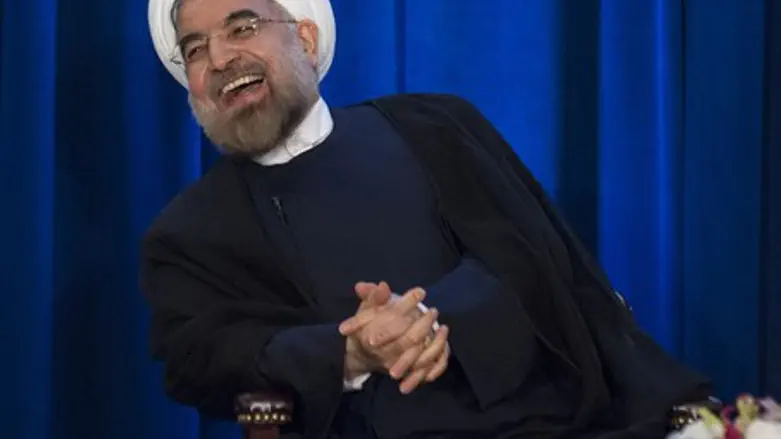
At least 850 people have been executed in Iran in the past 15 months as part of a worsening human rights situation under President Hassan Rouhani, who has been branded as a “reformist”, a UN official said Monday, according to AFP.
Ahmed Shaheed, the rights rapporteur for Iran, described a "surge in executions," giving Iran the world's the highest death penalty rate per capita.
"The range of capital crimes is shocking," Shaheed was quoted as having told journalists. "We have seen a person executed for making a donation to a foreign organization."
The rapporteur said he was "shocked" by the hanging over the weekend of 26-year-old Reyhaneh Jabbari who was convicted of murdering a former intelligence officer she claimed had tried to sexually assault her.
Shaheed said he had repeatedly raised with Tehran questions about the fairness of her trial.
Iran has executed 852 people since June of last year, including eight juveniles, said the envoy, who is to present his report to the UN General Assembly on Tuesday.
The surge in executions shows that Rouhani has failed to deliver on campaign promises to improve the human rights situation in his country, a year after taking office, he said.
"He is unable to address the issues, unable to arrest this trend, to convert his promises which spoke to arresting this trend into action," said Shaheed, according to AFP.
The rapporteur suggested that Rouhani lacked political backing, in particular from parliament, to advance his rights agenda.
Since his appointment in 2011, Shaheed has never been allowed to visit Iran, but he has spoken to some 400 Iranians, making use of Skype and at times even receiving calls from prison.
Iran regularly executes citizens who are convicted of a variety of crimes, including murder, rape, armed robbery, drug trafficking, adultery and espionage.
A report by Amnesty International, dated January, found that execution orders in the Islamic Republic have risen dramatically since the beginning of 2014.
Not only has Iran refused to let Shaheed enter the country, an Iranian lawmaker claimed recently that Shaheed was nothing but “a spy for the Mossad.”
In his report to the 193-nation Assembly, Shaheed also raised concerns over freedom of the press, noting that 35 journalists are currently behind bars in Iran.
At least 300 people are in prison for their religious practices including 120 Bahais and 49 Christians.
The report also touched on a drop in the number of women enrolled at universities, from 62 percent in 2008 to 48 percent last year.
A UN General Assembly is expected next month to vote on a draft resolution put forward by Canada and other nations condemning rights abuses in Iran.